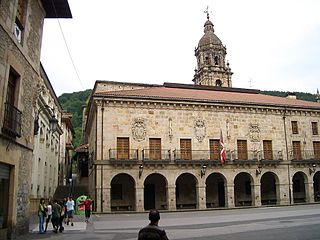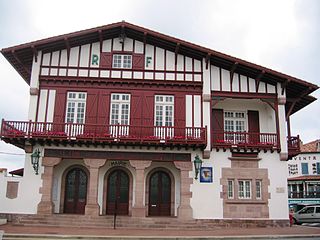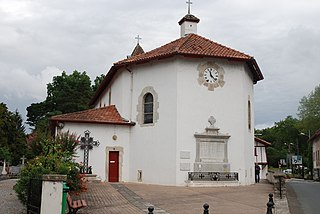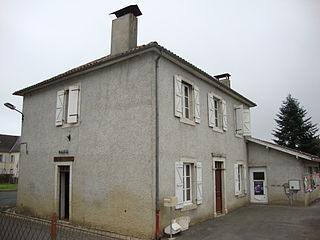This article has multiple issues. Please help improve it or discuss these issues on the talk page . (Learn how and when to remove these template messages)
|
The Euskomedia Fundazioa is a foundation established in 2002 by the Society of Basque Studies. [1] Its principal objective is the provision of cultural and scientific material " that could be of use for people interested in Basque society and culture." [1]
A foundation is a legal category of nonprofit organization that will typically either donate funds to and support other organizations, or provide the source of funding for its own charitable purposes. Foundations incorporate public foundations to pool funds and private foundations who are typically endowed by an individual or family.
In 2008, in association with Society of Basque Studies, the Euskomedia foundation published an internet version of Joanes Leizarraga's translation of the New Testament into the Basque language. [2]
Joanes Leizarraga (1506–1601) was a 16th-century Basque priest. He is most famous for being the first to attempt the standardisation of the Basque language and for the translation of religious works into Basque, in particular the first Basque translation of the New Testament.

The New Testament is the second part of the Christian biblical canon, the first part being the Old Testament, based on the Hebrew Bible. The New Testament discusses the teachings and person of Jesus, as well as events in first-century Christianity. Christians regard both the Old and New Testaments together as sacred scripture. The New Testament has frequently accompanied the spread of Christianity around the world. It reflects and serves as a source for Christian theology and morality. Extended readings and phrases directly from the New Testament are incorporated into the various Christian liturgies. The New Testament has influenced religious, philosophical, and political movements in Christendom and left an indelible mark on literature, art, and music.

Basque (; euskara[eus̺ˈkaɾa]) is a language spoken in the Basque Country, a region that straddles the westernmost Pyrenees in adjacent parts of northern Spain and southwestern France. Linguistically, Basque is unrelated to the other languages of Europe and is a language isolate to any other known living language. The Basques are indigenous to, and primarily inhabit, the Basque Country. The Basque language is spoken by 28.4% (751,500) of Basques in all territories. Of these, 93.2% (700,300) are in the Spanish area of the Basque Country and the remaining 6.8% (51,200) are in the French portion.

















